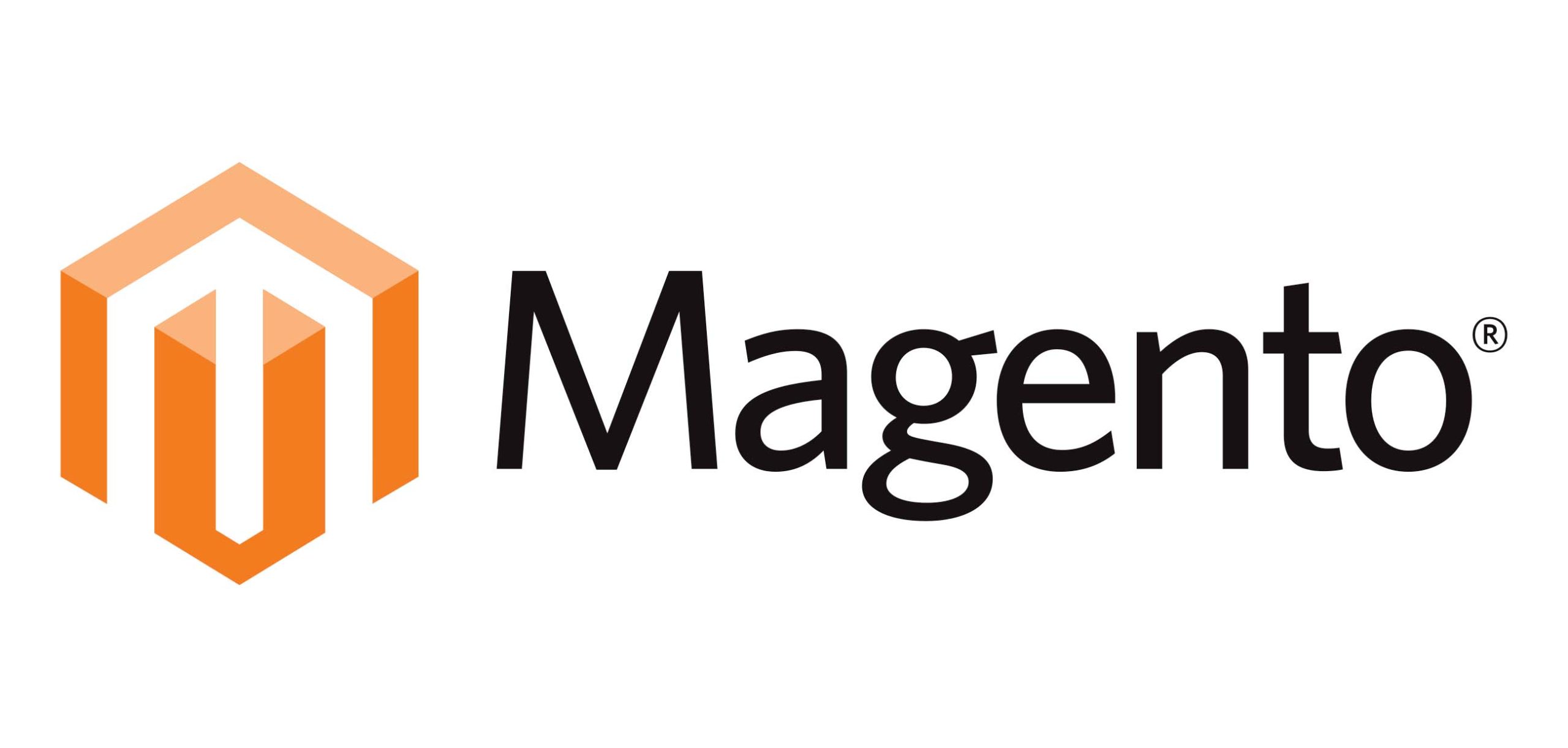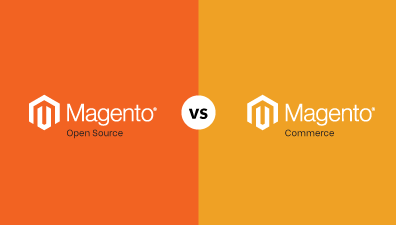In the ever-expanding landscape of eCommerce and enterprise resource planning (ERP) solutions, businesses are faced with the crucial decision of selecting the most suitable platform to meet their unique needs. Among the myriad options available, Magento vs Odoo stand out as two prominent contenders, each offering distinct strengths and functionalities tailored to different aspects of business operations.
In this blog post, we’ll delve deeper into the features, strengths, and considerations associated with Magento vs Odoo, helping you make an informed decision that aligns with your business goals and objectives. By understanding the unique offerings of each platform and assessing how they align with your business needs, you can confidently choose the right solution to propel your business forward in today’s competitive landscape.
Table of Contents
Magento vs Odoo: Overview
Magento
Magento is a powerful and popular open-source eCommerce platform that provides merchants with a flexible and scalable solution for creating online storefronts. Owned by Adobe, Magento has evolved into one of the leading choices for businesses of all sizes looking to establish a robust online presence and drive sales through eCommerce channels.

Magento was first released in 2008, and since then, it has undergone several iterations and updates to meet the changing demands of the eCommerce industry. It offers two primary editions: Magento Open Source (formerly known as Magento Community Edition) and Magento Commerce (formerly known as Magento Enterprise Edition and Magento Commerce Cloud). While Magento Open Source is free to use and provides essential eCommerce features, Magento Commerce offers additional functionalities and support services for larger enterprises.
Magento boasts a comprehensive set of features designed to empower merchants to create, manage, and optimize their online stores effectively. Some of the key features include:
- Customizable Storefront: Magento offers extensive customization options, allowing merchants to tailor their storefronts to reflect their brand identity and unique selling propositions.
- Catalog Management: Merchants can easily manage their product catalogs, including adding new products, updating inventory, and organizing products into categories and attributes.
- Payment and Shipping Options: Magento supports a wide range of payment gateways and shipping methods, providing flexibility and convenience for both merchants and customers.
- SEO-Friendly: Magento is built with search engine optimization (SEO) best practices in mind, helping merchants improve their visibility in search engine results and drive organic traffic to their stores.
- Analytics and Reporting: The platform offers robust analytics and reporting tools, allowing merchants to track sales performance, monitor customer behavior, and gain valuable insights to inform decision-making.
Pros of Magento:
- Flexibility: Magento’s modular architecture and extensive customization options make it highly flexible, enabling merchants to tailor their online stores to meet their specific requirements.
- Scalability: Magento is capable of scaling alongside businesses as they grow, making it suitable for businesses of all sizes, from startups to large enterprises.
- Community Support: As an open-source platform, Magento benefits from a large and active community of developers and users who contribute to its ongoing development and provide support and resources.
- Feature-Rich: Magento offers a comprehensive set of features out-of-the-box, covering all aspects of eCommerce operations, from product management to customer engagement and analytics.
Cons of Magento:
- Complexity: Magento’s extensive features and customization options can be overwhelming for beginners, requiring a certain level of technical expertise to set up and manage effectively.
- Resource Intensive: Magento’s resource requirements, including hosting, server resources, and technical maintenance, can be significant, especially for larger stores or high-traffic websites.
- Cost of Magento Commerce: While Magento Open Source is free to use, Magento Commerce comes with a significant price tag, which may be prohibitive for smaller businesses or startups without the budget for enterprise-level solutions.
In summary, Magento is a powerful and versatile eCommerce platform that offers a wealth of features and customization options for merchants looking to establish and grow their online presence. While it may have some complexities and resource requirements, its flexibility, scalability, and robust feature set make it a compelling choice for businesses seeking a reliable and customizable eCommerce solution.
Odoo
Odoo, formerly known as OpenERP, is an all-in-one open-source enterprise resource planning software suite that encompasses a wide range of business management applications. Developed by Belgium-based company Odoo S.A., Odoo offers a modular approach to business software, allowing organizations to integrate various modules seamlessly to streamline their operations and improve efficiency across departments.

Odoo was first introduced in 2005 as a collection of open-source business applications designed to meet the diverse needs of modern businesses. Over the years, it has evolved into a comprehensive ERP solution, offering modules for various functions such as accounting, inventory management, CRM (Customer Relationship Management), eCommerce, manufacturing, project management, and more. With its modular architecture and user-friendly interface, Odoo has gained popularity among businesses of all sizes, from small startups to large enterprises, seeking an affordable and customizable ERP solution.
Odoo provides a broad array of features and functionalities across its various modules, empowering businesses to manage their operations effectively. Some of the key features include:
- Modular Architecture: Odoo’s modular design allows organizations to select and integrate only the modules they need, enabling them to build a customized ERP solution tailored to their specific requirements.
- Manufacturing: Odoo aids in managing factory operations, such as assembly lines and manufacturing processes. It includes features for quality checks of end products.
- CRM: The system provides a dashboard to track sales activities and offers strategic advice for executing CRM plans.
- Inventory Management: Odoo’s double-entry inventory system tracks both raw materials from suppliers and customer orders. It supports order creation with or without barcode scanners.
- Accounting: The platform automates invoice creation, saving time and effort. It also helps in asset tracking and depreciation, including generating amortization entries and managing various aspects of asset management.
Pros of Odoo:
- Affordability: As an open-source software, Odoo is available for free under the community edition, making it a cost-effective option for businesses with budget constraints.
- Modular Approach: Odoo’s modular architecture allows businesses to start with basic functionalities and add or remove modules as needed, providing scalability and flexibility.
- Comprehensive Functionality: With its wide range of modules covering various business functions, Odoo offers a comprehensive solution for managing all aspects of operations within a single platform.
- Active Community Support: Odoo benefits from a vibrant community of developers and users who contribute to its ongoing development, provide support, and create extensions and customizations.
Cons of Odoo:
- Complexity: Implementing and configuring Odoo to meet specific business requirements may require some technical expertise, particularly for customization and integration with existing systems.
- Support Limitations: While the community edition of Odoo is free to use, businesses may encounter limitations in terms of support and access to certain features, which are available exclusively in the enterprise edition.
- Performance Issues: In some cases, businesses may experience performance issues with Odoo, particularly with larger datasets or when running multiple modules simultaneously, requiring optimization and resource allocation.
All in all, Odoo is a versatile and customizable ERP solution that offers businesses a cost-effective and comprehensive platform for managing their operations. With its modular architecture, extensive feature set, and active community support, Odoo provides businesses with the flexibility and scalability they need to streamline processes, improve efficiency, and drive growth. However, businesses should be mindful of potential complexities in implementation and customization, as well as the differences between the community and enterprise editions when evaluating Odoo for their needs.
Magento vs Odoo: Detailed Comparisons
Purpose of Implementation
In the realm of eCommerce and enterprise resource planning (ERP), the choice between Magento vs Odoo hinges on the specific needs and operational focus of your business. Magento is the preferred choice for businesses seeking a dedicated and feature-rich eCommerce platform, whereas Odoo is more suitable for those looking for a comprehensive ERP solution with supportive eCommerce modules.

The decision between Odoo and Magento should be based on your business’s specific needs and operational focus. If your primary focus is on online retail and you require advanced eCommerce features, Magento would be the ideal choice. However, if you need a comprehensive ERP solution that can also handle eCommerce activities alongside other business functions, Odoo would be the better fit. Understanding the distinct purposes of these platforms is crucial for making an informed decision.
Magento
Magento is primarily designed as an eCommerce platform, well-suited for businesses focusing on online retail. It offers a comprehensive set of features for CRM, stock management, and other eCommerce-related tasks. With Magento, businesses can easily create and manage online storefronts, handle transactions, and optimize the customer shopping experience. Its robust features include advanced product catalog management, flexible pricing and promotion options, and powerful analytics tools for tracking sales performance and customer behavior. Additionally, Magento’s extensive ecosystem of plugins and extensions allows for further customization and integration with third-party systems.
However, the complexity of Magento increases with the addition of more features, which might require users to possess technical skills or seek assistance from a technician. While Magento can accommodate some ERP-related functionalities through integration with third-party systems, its core focus remains on providing a feature-rich eCommerce experience.
Odoo
On the other hand, Odoo is an ERP-focused platform. While it supports eCommerce activities, its core strength lies in ERP functionalities. Odoo includes modules like Odoo Website for creating websites, Odoo Sales for sending quotations, Odoo CRM for lead generation and management, Odoo Inventory for stock updates, and Odoo Email Marketing for newsletters. These modules provide valuable support for eCommerce activities, but they are not as eCommerce-centric as Magento, and their features aren’t as robust as Magento’s.
Odoo’s strength lies in its ability to integrate various business functions seamlessly within a unified platform. Businesses can utilize Odoo to manage not only eCommerce operations but also other critical aspects of their business, such as accounting, human resources, project management, and more. Its modular architecture allows businesses to select and integrate only the modules they need, providing scalability and flexibility as their business grows and evolves.
Functionality
Magento excels as a specialized eCommerce platform, offering advanced features and capabilities specifically tailored for online retail. Its strengths lie in creating optimized online shopping experiences, with robust marketing tools, SEO optimization, and comprehensive catalog management. On the other hand, Odoo is a comprehensive ERP system with a broader scope, encompassing various business functions beyond eCommerce.

While it includes modules to support eCommerce activities, its core focus is on overall business management, with highly customizable and flexible features to cater to a wide range of business operations. The choice between Magento vs Odoo ultimately depends on your business’s specific needs and operational focus, whether it be eCommerce-centric or broader business management.
Magento
Magento stands out as a specialized eCommerce platform, renowned for its robust features tailored explicitly for online retail businesses. Its functionalities are meticulously designed to enhance the online shopping experience, driving sales and customer satisfaction. Some key functionalities of Magento include:
- Comprehensive Catalog and Product Management: With Magento, merchants have access to a comprehensive catalog and product management system, allowing them to efficiently manage product listings, attributes, categories, and inventory. They can easily create and update product information, upload images, set pricing and inventory levels, and manage product variants.
- Optimized Shopping Experience: Magento prioritizes creating an optimized shopping experience for customers, with detailed features for product browsing, quick and seamless checkout processes, multiple payment options, and flexible shipping methods. Its intuitive user interface and responsive design ensure a consistent and user-friendly experience across devices.
- Multi-Site Management: Magento’s site management capabilities enable businesses to control multiple websites and stores from a single admin panel. This functionality is particularly beneficial for multi-brand retailers, international businesses, or companies operating multiple online stores catering to different markets or customer segments.
- Mobile Commerce: Recognizing the growing importance of mobile commerce, Magento is well-equipped with features and capabilities to support mobile shopping. Its responsive design ensures that online stores adapt seamlessly to various screen sizes and devices, providing a consistent and optimized experience for mobile users.
Odoo
In contrast to Magento’s specialized focus on eCommerce, Odoo is an ERP system with a broader scope, encompassing a wide range of business functions beyond eCommerce. While it includes modules to support eCommerce activities, its core strength lies in overall business management. Some key functionalities of Odoo include:
- Comprehensive Business Management: Odoo offers a comprehensive suite of modules covering various business functions, including Customer Relationship Management (CRM), sales, inventory management, accounting, human resources, project management, and more. This breadth of functionality allows businesses to manage all aspects of their operations within a unified platform.
- Highly Customizable and Flexible: One of Odoo’s standout features is its high degree of customization and flexibility. Its modular architecture allows businesses to select and integrate only the modules they need, tailoring the system to their specific requirements. This flexibility extends to workflows, processes, and user interfaces, enabling businesses to adapt and evolve as needed.
- Integrated eCommerce Modules: While Odoo’s primary focus is on ERP functionalities, it includes modules such as Odoo Website, Odoo Sales, and Odoo Inventory, which provide support for eCommerce activities. These modules enable businesses to create and manage websites, handle online sales orders, track inventory levels, and streamline order fulfillment processes within the Odoo ecosystem.
- Cross-Departmental Integration: Odoo facilitates seamless integration and data sharing across various departments and modules, eliminating silos and improving collaboration and communication within the organization. This integration ensures that information flows smoothly between different functions, enhancing efficiency and decision-making.
- Extensive App Marketplace: Odoo boasts an extensive app marketplace with thousands of third-party apps and integrations, allowing businesses to extend the platform’s functionality and integrate with other software systems seamlessly. This vast ecosystem of apps covers a wide range of industries and use cases, providing businesses with additional tools and resources to enhance their operations.
Marketing Ads and SEO tools
In terms of marketing, Magento offers a comprehensive suite of marketing tools out of the box, designed to empower merchants to drive sales and engage customers effectively. Its advanced marketing and promotional tools and integrated SEO capabilities provide merchants with the tools they need to optimize their marketing efforts and enhance the eCommerce experience. Odoo also offers solid marketing features but may require additional modules or configuration for full functionality, similar to what Magento provides out of the box.

While its modular approach grants flexibility and customization options, businesses may need to invest additional time and resources to access certain advanced marketing features. Both Magento vs Odoo ensure that businesses can optimize their websites for better search engine rankings with essential SEO tools, helping them attract more organic traffic and grow their online presence.
Magento
Magento comes equipped with a robust set of marketing tools designed to enhance the eCommerce experience. Its comprehensive suite of features is geared towards empowering merchants to drive sales, engage customers, and optimize their marketing efforts effectively.
- Advanced Marketing and Promotional Tools: Magento offers a plethora of advanced marketing and promotional tools, empowering merchants to create targeted campaigns, discounts, and promotions to attract and retain customers. These tools include cart price rules, catalog price rules, and segmentation capabilities based on customer behavior.
- Extensive SEO Optimization: Magento is equipped with comprehensive SEO optimization features, enabling businesses to improve their visibility in search engine results pages (SERPs) and drive organic traffic to their online stores. It includes customizable URL structures, metadata management, XML sitemap generation, and rich snippet support, among other SEO-friendly features.
Odoo
Odoo Enterprise offers solid marketing features, although some functionalities may require additional modules for full functionality, similar to what Magento provides out of the box. While this modular approach grants flexibility and customization options, it may require additional configuration and integration efforts.
- Modular Approach: Odoo’s modular architecture allows businesses to select and integrate the marketing features they need, providing flexibility and customization options. While this approach offers scalability and adaptability, it may require additional modules or configuration to access certain advanced marketing functionalities.
- Essential SEO Tools: Odoo matches Magento in providing essential SEO tools to help businesses optimize their websites for better search engine rankings. These tools include customizable URL structures, metadata management, and XML sitemap generation, among others. By implementing SEO best practices, businesses can improve their online visibility and attract more organic traffic to their websites.
Customization and Flexibility
Magento vs Odoo offer contrasting approaches to customization and flexibility. Magento excels in providing robust and scalable features, ideal for businesses looking to deeply customize their online stores with the help of certified developers. On the other hand, Odoo prioritizes accessibility and ease of setup, making it suitable for small to medium-sized businesses or those new to eCommerce.

While Magento offers extensive customization options and flexibility through its open-source platform, Odoo provides a user-friendly experience with its modular architecture and diverse range of apps available through the Odoo store.
Magento
Magento is renowned for its robustness and scalability, making it a preferred choice for many businesses looking to establish a powerful online presence. However, this robustness comes with a level of complexity that may require technical expertise to navigate effectively.
- Complexity and Expertise: Setting up a Magento site can be quite involved, especially for those without technical skills. It’s often advisable to hire a Magento expert to handle the initial setup process. These certified developers bring a wealth of knowledge specific to Magento’s platform, ensuring that the setup is optimized for performance and scalability.
- Robust and Scalable Features: Magento’s robustness and scalability make it perfect for merchants who want to deeply customize their online stores. As an open-source platform, every aspect of the store can be tailored to specific requirements, including the look and feel, functionality, and user experience.
- Customization Options: Magento offers extensive customization options, ranging from simple theme changes to complex integrations with third-party services or bespoke module development. Merchants have the flexibility to customize their Magento stores to meet their unique business needs and branding preferences.
Odoo
Odoo takes a contrasting approach to setup and customization vs Magento, aiming to be more accessible and user-friendly for businesses of all sizes.
- Ease of Setup: Odoo is designed to be more accessible, allowing users to set up their platform without necessarily requiring professional help. The ease of setup is one of Odoo’s strong suits, making it an attractive option for small to medium-sized businesses or those just starting with eCommerce.
- App Marketplace: Despite its simplicity, Odoo doesn’t lack customization options. The platform offers a variety of apps available through the Odoo store, which can extend the functionality of the website and enhance the overall eCommerce experience. These apps cover a wide array of business needs, from accounting and HR to marketing and sales.
- Flexibility and Modularity: Odoo’s modular architecture provides flexibility and scalability, allowing businesses to select and integrate only the modules they need. This modular approach enables businesses to customize their Odoo platform to suit their specific requirements, adding or removing functionalities as needed.
Integration
Magento vs Odoo offer different approaches to integration. Magento excels in providing an extensive marketplace of extensions, making it easy for businesses to enhance their eCommerce capabilities and integrate with third-party systems seamlessly. On the other hand, Odoo takes a comprehensive approach, offering an all-inclusive suite of business applications that aim to cover various business processes within a cohesive ecosystem.
Magento
Magento is renowned for its extensive marketplace of extensions, providing businesses with a plethora of options to enhance their eCommerce capabilities and integrate with third-party systems seamlessly.

- Extensive Marketplace: Magento boasts a vast marketplace of extensions, offering a wide range of options for businesses to enhance their eCommerce functionalities. These extensions cover various aspects of eCommerce operations, including customer experience, payment gateways, shipping solutions, and backend systems integration.
- Ease of Integration: Business owners can easily find and integrate third-party extensions into their Magento stores, thanks to the platform’s popularity and widespread adoption. The prevalence of Magento in the market ensures that support and expertise for implementing these extensions are readily available, minimizing the need for in-house technical knowledge.
Odoo
Odoo offers a comprehensive suite of business applications that aim to cover a wide range of business processes within a cohesive ecosystem, potentially reducing the need for additional extensions.
- All-Inclusive Suite: Odoo provides businesses with an all-inclusive suite of business applications, offering a cohesive ecosystem where everything works together smoothly. This comprehensive approach may reduce the need for additional extensions, as many essential functionalities are already built into the platform.
- Complexity of Customization: While Odoo’s all-inclusive suite offers convenience, integrating specialized functionalities beyond what Odoo provides can be more complex compared to Magento. Customizing and integrating add-ins may require professional assistance, especially for eCommerce-specific extensions.
- Considerations for Integration: Businesses considering Odoo for their eCommerce needs must weigh the ease of scaling and extending their eCommerce functionalities against the benefits of an integrated business suite. While Odoo’s comprehensive platform offers a wide range of functionalities, businesses may need to invest more time and resources in customization and integration efforts for specialized requirements.
Customer support
Both Magento vs Odoo offer robust customer support systems to assist users in resolving issues and getting the most out of the platforms. Both platforms provide dedicated support channels, including help centers, support portals, and documentation, to help users navigate the platforms effectively and troubleshoot common issues.
Magento
Customer Support Systems:
Magento offers various customer support options to assist users in resolving issues and queries efficiently. These support systems include:
- Magento Help Center: Users can access a comprehensive Help Center provided by Magento, featuring documentation, user guides, troubleshooting articles, and frequently asked questions (FAQs) to assist with common issues and queries.
- Magento Support Portal: Magento provides a dedicated support portal where users can submit support tickets to seek assistance from Magento’s support team. This portal allows users to track the progress of their tickets and communicate directly with Magento’s support representatives.

Support outside of the Platform (User Community):
In addition to official support channels, Magento benefits from a vibrant user community that provides valuable support and assistance to fellow users. This community includes forums, discussion boards, online groups, and social media channels where users can interact, share knowledge, seek advice, and troubleshoot issues collectively. The Magento user community is known for its active participation and willingness to help others, making it a valuable resource for users seeking additional support and guidance.
Odoo
Customer Support Systems:
Odoo offers comprehensive customer support systems to assist users in resolving issues and getting the most out of the platform. These support systems include:
- Odoo Helpdesk: Odoo provides a dedicated Helpdesk system where users can submit support tickets and inquiries directly to Odoo’s support team. Users can track the status of their tickets and communicate with support representatives to resolve issues promptly.
- Odoo Documentation: Odoo offers extensive documentation, user guides, tutorials, and FAQs to help users navigate the platform and troubleshoot common issues independently. The documentation covers various aspects of Odoo’s functionality and features, providing users with valuable resources for self-help and learning.
Support outside of the Platform (User Community):
Similar to Magento, Odoo benefits from a thriving user community that actively contributes to support and knowledge sharing. The Odoo user community comprises forums, discussion groups, online communities, and social media channels where users can connect, collaborate, and exchange insights. Users can seek advice, share experiences, and troubleshoot issues with fellow users, leveraging the collective expertise and experience of the community to address challenges and optimize their use of the platform.
Security
Both Magento vs Odoo prioritize security and implement robust security measures to protect user data and prevent unauthorized access to their platforms. Both platforms utilize encryption techniques, user authentication mechanisms, and regular security updates to safeguard sensitive information and mitigate security risks. Additionally, both Magento vs Odoo offer third-party security extensions and conduct regular security audits to enhance security further and address emerging threats promptly.

The choice between Magento vs Odoo security systems may depend on factors such as the specific security requirements of the business, the level of customization and integration needed, and the preference for specific security features and functionalities.
Magento
Magento places a high priority on security to safeguard sensitive data and protect online stores from potential threats and vulnerabilities.
Built-in Security Features:
Magento incorporates robust built-in security features to ensure the integrity and confidentiality of user data. These features include:
- Data Encryption: Magento uses encryption techniques to secure sensitive data such as customer information, payment details, and login credentials, protecting them from unauthorized access.
- User Authentication: Magento implements secure user authentication mechanisms, including password hashing and multi-factor authentication (MFA), to prevent unauthorized access to admin accounts and sensitive areas of the platform.
- Security Patches: Magento regularly releases security patches and updates to address known vulnerabilities and security issues promptly. Merchants are encouraged to apply these patches promptly to maintain the security of their online stores.
Third-Party Security Extensions:
Additionally, Magento offers a range of third-party security extensions and plugins that merchants can integrate into their stores to enhance security further. These extensions provide additional layers of protection against common security threats such as malware, phishing attacks, and brute-force attacks.
Odoo
Odoo also prioritizes security to ensure the protection of sensitive business data and prevent unauthorized access to its platform and associated resources.
Security Measures:
Odoo implements various security measures to safeguard user data and protect against potential security threats. These measures include:
- Role-Based Access Control (RBAC): Odoo employs role-based access control mechanisms to restrict access to sensitive areas of the platform based on user roles and permissions. This helps prevent unauthorized access to critical data and functionalities.
- Data Encryption: Odoo utilizes encryption techniques to encrypt sensitive data stored within the platform, such as customer information, financial records, and business documents, protecting them from unauthorized access and data breaches.
- Security Audits: Odoo conducts regular security audits and assessments to identify potential vulnerabilities and security weaknesses within the platform. These audits help ensure that security measures are up-to-date and effective in mitigating emerging security threats.
Security Updates:
Similar to Magento, Odoo releases regular security updates and patches to address known vulnerabilities and security issues promptly. Users are encouraged to apply these updates promptly to maintain the security of their Odoo installations and protect against potential security threats.
Ease of Use
Magento is known for its complexity and may require more technical expertise to navigate and customize effectively. In contrast, Odoo prioritizes usability and provides a more user-friendly experience, making it accessible to users with varying levels of technical knowledge.

Ultimately, the choice between Magento vs Odoo ease of use may depend on factors such as the user’s familiarity with eCommerce platforms, and the availability of technical resources for setup and configuration.
Magento
Magento, while powerful and feature-rich, is often considered to have a steeper learning curve compared to some other eCommerce platforms due to its complexity and advanced functionalities.
- User Interface (UI) and Navigation: Magento’s user interface can be complex for beginners, with a multitude of options and settings that may overwhelm new users. Navigating through the admin panel and configuring settings may require some technical knowledge or training.
- Setup and Configuration: Setting up a Magento store can be time-consuming and may require technical expertise. While Magento provides extensive documentation and resources to assist with setup and configuration, users may still encounter challenges, especially when customizations or integrations are involved.
Odoo
Odoo is designed with usability in mind, aiming to provide a user-friendly experience for businesses of all sizes.
- User Interface (UI) and Navigation: Odoo features a modern and intuitive user interface that is easy to navigate, even for users with limited technical knowledge. The platform’s clean layout and organized menu structure make it straightforward for users to access various modules and functionalities.
- Setup and Configuration: Setting up an Odoo instance is relatively straightforward, thanks to its intuitive setup wizard and guided configuration process. Users can easily configure settings, add modules, and customize workflows without extensive technical expertise.
Performance and Scalability
Magento vs Odoo, both prioritize performance and scalability to meet the needs of growing businesses and large-scale deployments. Magento excels in handling high website traffic, large product catalogs, and a high volume of transactions, thanks to its robust performance optimization techniques and scalable architecture. Odoo, on the other hand, offers similar performance and scalability capabilities, leveraging its modular architecture and distributed deployment options to accommodate evolving business requirements.
Magento
Magento is well-known for its robust performance and scalability, making it a preferred choice for large-scale eCommerce operations.
- Performance Optimization: Magento offers various performance optimization techniques to ensure fast page loading times and smooth user experiences. These techniques include caching mechanisms, code optimization, image compression, and server configuration optimizations.
- Scalability: Magento is highly scalable, and capable of handling large product catalogs, high website traffic, and a high volume of transactions without sacrificing performance. The platform’s architecture is designed to scale horizontally and vertically, allowing businesses to expand their operations seamlessly as their needs grow.
- Server Requirements: Magento has specific server requirements to ensure optimal performance and scalability. These requirements typically include dedicated hosting environments with sufficient resources such as CPU, RAM, storage, and bandwidth. Additionally, Magento recommends using technologies like Varnish cache, Redis, and Elasticsearch for improved performance and scalability.
Odoo
Odoo also emphasizes performance and scalability to accommodate the needs of growing businesses and large-scale deployments.

- Performance Optimization: Odoo incorporates performance optimization techniques to enhance system responsiveness and efficiency. These techniques may include database optimization, code profiling, query optimization, and server resource management to improve overall system performance.
- Scalability: Odoo is designed to scale horizontally and vertically, allowing businesses to expand their operations seamlessly as their requirements grow. The platform’s modular architecture and distributed deployment options enable organizations to add resources and modules as needed without compromising performance or stability.
- Server Requirements: Similar to Magento, Odoo has specific server requirements to ensure optimal performance and scalability. These requirements typically include dedicated server resources, database optimizations, and appropriate server configurations to support the desired workload and user concurrency.
Pricing and Cost
The choice between Magento vs Odoo pricing and cost depends on factors such as the specific requirements of the business, the desired features and functionalities, and the budget available for implementation and maintenance.

Magento provides a choice between a free open-source edition and a paid enterprise edition, while Odoo offers a free community edition with the option to upgrade to a paid enterprise edition for additional features and support.
Magento
Pricing Structure:
Magento offers two main editions: Magento Open Source (formerly Community Edition) and Magento Commerce (formerly Enterprise Edition). Magento Open Source is free to download and use, making it a cost-effective option for businesses with smaller budgets. On the other hand, Magento Commerce is a paid version that offers additional features, support, and services tailored to larger enterprises. The pricing for Magento Commerce varies based on factors such as business size, revenue, and specific requirements.
Hidden Costs and Maintenance Fees:
While Magento Open Source is free to download and use, businesses may incur additional costs for hosting, development, customization, and third-party extensions or integrations. Additionally, Magento Commerce involves ongoing subscription fees, which can vary depending on the chosen plan and the level of support and services required. Businesses should also budget for maintenance, updates, and security patches to ensure the ongoing performance and security of their Magento stores.
Odoo
Pricing Structure
Odoo follows a modular pricing structure, allowing businesses to choose and pay for only the modules and functionalities they need. The core Odoo Community Edition is free to use and includes basic features and modules. However, businesses looking for more advanced features, support, and services can opt for the Odoo Enterprise Edition, which is a paid version offering additional functionalities, support, and services. The pricing for Odoo Enterprise varies based on factors such as the number of users, modules, and level of support required.
Hidden Costs and Maintenance Fees:
While Odoo Community Edition is free to use, businesses may incur costs for hosting, implementation, customization, and integration with third-party systems. Additionally, businesses opting for Odoo Enterprise Edition will need to budget for ongoing subscription fees, which can vary depending on the chosen plan and the level of support and services required. Maintenance fees may also apply for updates, patches, and support services to ensure the continued performance and functionality of the Odoo platform.
Final Thoughts and Recommendation for Magento vs Odoo
After a comprehensive analysis of Magento vs Odoo across various key aspects, including features, customization, ease of use, performance, scalability, security, and pricing, it is evident that both platforms offer distinct advantages and cater to different business needs.
Magento stands out as a specialized eCommerce platform, offering robust features tailored for online retail. Its strengths lie in creating an optimized online shopping experience, with advanced marketing tools, extensive SEO optimization, and a comprehensive catalog and product management system. Magento is highly customizable and scalable, making it suitable for businesses seeking a dedicated eCommerce solution with the ability to deeply customize their online stores.
Odoo, on the other hand, is an all-in-one ERP system with a broader scope, covering various business functions beyond eCommerce, such as CRM, sales, inventory management, and more. While Odoo supports eCommerce activities, its core strength lies in overall business management. It offers a user-friendly experience, ease of setup, and extensive customization options, making it ideal for small to medium-sized businesses or those looking for an integrated business suite with cohesive functionality.
Recommendation:
Choose Magento if:
- You are primarily focused on eCommerce and require advanced features for online retail.
- You have a large product catalog and expect high website traffic and transactions.
- You prioritize deep customization and scalability for your online store.
- You have the technical expertise or resources to manage the complexity of Magento’s platform.
Choose Odoo if:
- You are looking for a comprehensive business management solution beyond eCommerce.
- You prefer a user-friendly experience and easy setup process.
- You need integrated functionalities across various business processes, including CRM, sales, and inventory management.
- You are a small to medium-sized business or startup with budget constraints.
Conclusion
Ultimately, the choice between Magento vs Odoo depends on the specific needs, priorities, and resources of your business. It is essential to carefully evaluate your requirements and consider factors such as features, customization, scalability, ease of use, and budget before making a decision. Additionally, consulting with experts or conducting a trial period with both platforms can provide valuable insights to help you make an informed choice tailored to your business needs.
If you find our content valuable and would love to receive similar updates from Magenest, please consider subscribing to our newsletters right below.











